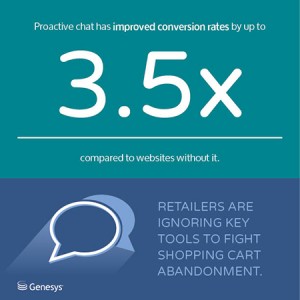— March 14, 2019
Pre-Seed Funding
Pre-Seed funding is also known as pre-seed money or pre-seed capital. It is the initial investment the business needs to get started. However, this is not included by many people in the cycle of funding. The funds can come from family, friends or investors. Sometimes the persons who invest in the company get a stake in the exchange. Crowdfunding is one of the pre-seed funding platforms out the various pre-seeding platforms.
During the pre-seed funding, founders along with small team working on the proof-of-concept or prototype. The founders themselves invests in the company or by their friends, family and sometimes incubator or any angel investor.

Seed Funding
Seed Funding is the initial money a company raises even they raise Series A or not in the future. However, few companies also raise pre-seed funding to reach a position to raise a seed round, but this is not done by every company. Seed funding is expected to support the growth of the company, it can help the start-up to reach its first step i.e. Market research or Product development from its idea stage.
Seed funding can be raised from friends, family and sometimes incubator or any angel investor. And for early-stage start-ups Angel Investors are most common however, Venture Capital firms are a very good option.
For many start-ups, seed funding is the endpoint as the company closes if money runs out without getting traction. And some start-ups close its funding as they are not interested in raising money for future growth.
Money Involved in Seed Funding?
Usually, Seed funding round is between $ 500,000 and $ 2 million. It may be more or less depending on the company’s requirements.
What is Series A funding round?
Series A round is next round of funding after the seed funding once the company has some traction on their key performance indicators e.g. Revenue, number of users, number of views, etc depending on their industries KPIs. This round helps them to uplift their current KPIs performance. In Series A round funding, the companies have to develop a business model as per their future plans. In the funds from Series A round is expected to be utilized in revenue growth.
Involved of Money in a Series A funding round?
This round comes after the seed round, so the investment is higher than a seed round i.e. usually $ 2 million to $ 15 million. The funding is not for the great idea but for implementing the ideas for future growth. Series A round and all subsequent rounds are led by lead investors along with other investors. As the first investor, it is most important so other investors need to be in line. As losing the first investor before this round can be devasting as others may also drop out. Usually, Venture Capital firms are involved in Series A funding sometimes Angel investors also get involved.
What is Series B funding round?
In case a start-up reaches that point where they are ready to raise Series B round of funding and have already initiated their product in the market fit and needs help for expanding.
Big questions during the Series B funding are: Can the company increase its customer base from 1000 to 10,000? Can the company show an increase of 100% in revenue? The expansion strategy to be followed after Series B funding includes increasing the customer base but also increase the number of team members so that they can manage the increasing customer base.
As this is a competitive industry, to stay in the position the company needs to hire talented people for ranges of roles. Funds from series B round would be helpful for the founder to give competitive salaries to the employees.
Involvement of money in a Series B funding round?
Usually Series B round is of $ 7 million and $ 10 million. Venture capital firms invest in Series B funding sometimes by the same investor who lead the previous round of funding, to increase their holdings in the company.
What is Series C funding round?
In case the company reaches that point where they are ready to raise Series C round of funding and when they are planning to diversify their product line, acquire other business or are planning to expand to a new market.
Mostly, the companies raising Series C round are ready to take their product to the international market. They can also think of going for an IPO to increase their valuation or an acquisition.
Typically, Series C is the last round of funding raised by the company raises, but some companies raise Series D or Series E round and beyond. However, Series C is the final push for the company to offer IPO or an acquisition.
Involvement of Money in a Series C funding round?
Typically, start-up raises an average of $ 25 Million in their Series C funding round. The main points to be discussed in round C funding are: What is the customer base? How much revenue the company has earned? What is the expected growth? Typically, Series C funding comes from private equity firms, banks, hedge funds and also by venture capital firms that do investment in late-stage start-ups. At this point of time, major financial institution gets involved in the lifecycle of start-ups as the company has proved their performance.
What is Series D funding round?
Generally, series D funding round is a little complex than previous rounds of funding. As we know many companies finish raising money in the Series C round however, there are few reasons why a company may choose to raise Series D funding round.
A positive point for Series D funding: The company have got new options for expansion and wanted to boost its performance before going for an IPO. Companies which are raising Series D funding and further want to increase their value before going for IPO to the public. Otherwise, some companies stay private for longer, for them, Series D would be more helpful.
Involvement of money in a Series D funding round?
Venture Capital firms generally fund Series D round. Very few start-ups reach this stage hence the amount raised may vary.
Other methods of start-up funding
Equity funding is not only the option for fundraising for Start-ups. However, it is popular for Start-ups especially tech start-ups.
Following methods for fundraising can be used by start-ups:
- Venture Capital & Series Seed Funding: A, B, C, D, E
- Small Business Loan
- Crowdfunding
- Private Investors
- Small Business Grants
- Angel Investors
Business & Finance Articles on Business 2 Community
(80)
Report Post








